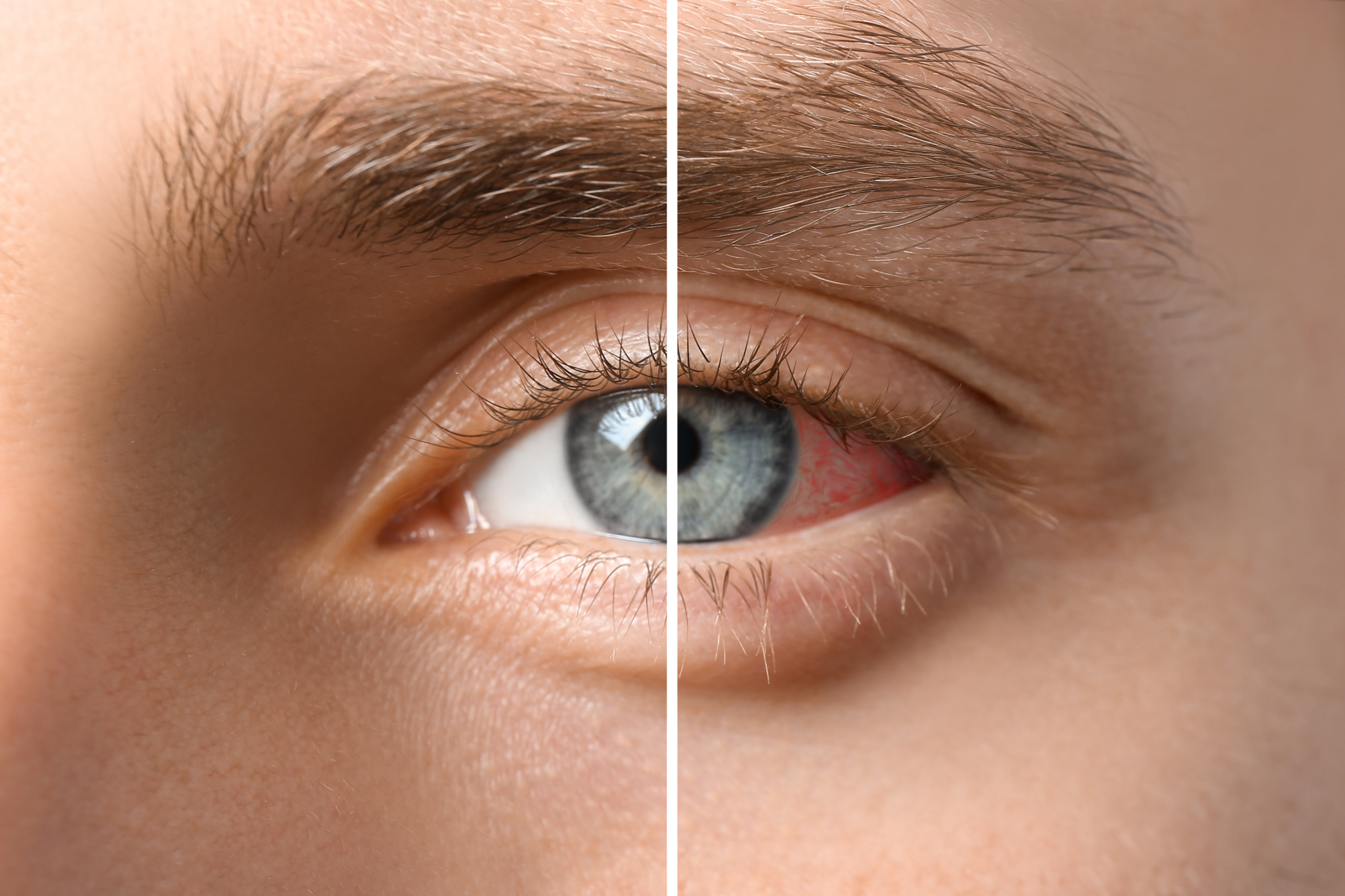Uveitis (Intraocular Inflammations)
Eye Treatments
Say goodbye to inflammation and hello to improved eye health. Trust our team to provide effective solutions tailored to your needs and restore your vision.
Uveitis is a condition characterized by inflammation in the uvea, which is the middle layer of the eye. The uvea consists of the iris, ciliary body, and choroid, and it plays a vital role in nourishing the eye and regulating its function. It can be caused by various factors, including infections, autoimmune disorders, trauma to the eye, or underlying systemic conditions. The inflammation associated with uveitis can affect one or both eyes, and it can vary in severity and duration.
Symptoms of uveitis may include eye redness, pain, light sensitivity (photophobia), blurred vision, floaters (spots or specks in your field of vision), and decreased visual acuity. It is important to seek prompt medical attention if you experience these symptoms, as uveitis can lead to complications that may affect your vision if left untreated. An eye care professional will evaluate your condition, determine the underlying cause of uveitis, and develop an appropriate treatment plan.
Treatment for uveitis typically involves addressing the underlying cause of inflammation and managing the symptoms. This may include the use of anti-inflammatory medications such as corticosteroid eye drops or oral medications, as well as dilating eye drops to relieve pain and prevent complications like synechiae (adhesions between the iris and lens). Immunosuppressive medications are sometimes prescribed to control the immunological response. Regular follow-up visits with your eye care professional are essential to monitor the progress of treatment and ensure proper management of uveitis.
All you need to know about eye surgery, including price, aftercare and healing process, or contact us!

FAQ
How to treat uveitis?
The treatment of uveitis involves a comprehensive approach aimed at reducing inflammation, relieving symptoms, and preserving vision. The specific treatment plan will depend on the underlying cause, severity of the inflammation, and individual patient factors. Typically, the first line of treatment involves the use of corticosteroid eye drops to reduce inflammation and manage symptoms. These eye drops are often prescribed at frequent intervals and gradually tapered as the inflammation subsides. In some cases, oral corticosteroids or immunosuppressive medications may be necessary to achieve better control of the immune response and prevent recurrent episodes of uveitis. Dilating eye drops may also be prescribed to alleviate pain and prevent complications such as synechiae, which are adhesions between the iris and lens. Additionally, if it is associated with an underlying systemic condition or infection, treating the underlying cause is crucial for effective management. Regular follow-up visits with an ophthalmologist or specialist are essential to monitor the progress of treatment, assess the response to medication, and make any necessary adjustments to the treatment plan.
How uveitis occurs?
Uveitis occurs when the uvea, the middle layer of the eye, becomes inflamed. The exact cause is often not known, but it can be triggered by various factors. These may include infections, such as viral, bacterial, or fungal infections that can affect the eye. It can also be associated with autoimmune disorders, where the body’s immune system mistakenly attacks the healthy tissues of the eye. Other possible causes include trauma to the eye, certain medications, or underlying systemic conditions like rheumatoid arthritis or inflammatory bowel disease. It can affect individuals of any age, but certain types of uveitis are more commonly seen in specific age groups or populations. It is important to consult with an eye care professional to determine the underlying cause of uveitis and develop an appropriate treatment plan to manage the inflammation.
Contact us now in case you have any questions!
Types of Treatments
Request Form
Get your free consultation
- Need guidance and reassurance?
- Talk to a real person from MedClinics!
- Let's find the perfect doctor together.